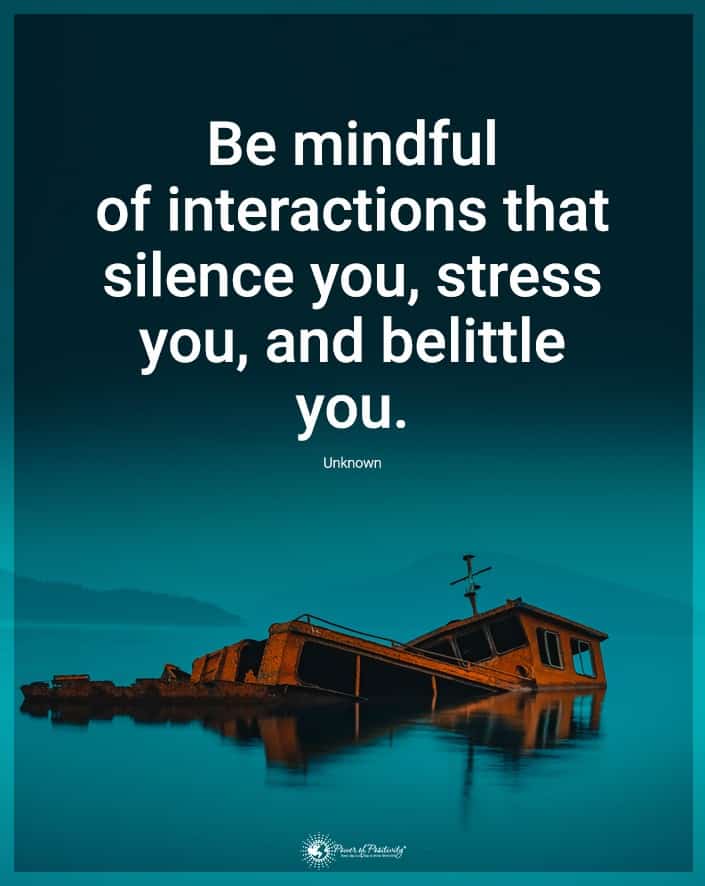Have you ever encountered an internet troll? If so, you probably consider them as the scourge of the worldwide web. But rest assured, they are nothing more than an online bully. Giving them more credence than that is far more than they deserve. The internet troll is hard to eliminate, as their interactions seem to multiply daily. Their provocation can drive you into a dark and negative place, which is precisely their nefarious intent.
While they make you miserable, there are some ways that you can identify a troll and ban them before they send you over the edge.
Trolls are on all the platforms, from Twitter to Facebook and even TikTok. They have one goal: to provoke or upset others using aggression. Once they accomplish their goal, they gain pleasure and amusement from their work. Indeed, you’ve likely already run into a few of these people if you’re online. But how can you spot the troublemaker and ban or report them before they become an issue?
The History of the Troll
When you hear the word troll, you probably think of the cute fuzzy-headed dolls and the movie. These mythical creatures have populated folklore for centuries. They’ve appeared in epic tales and fantasy writings since the early days. The earliest reference online is the 1990s, when people used the term to label people who used the malicious activity to bother others.
This is a form of harassment is a distasteful type of cyberbullying. In most instances, they don’t direct it at one individual. Instead, they aim to provoke anyone willing to challenge them. The sad fact is that there’s no way to chase who is behind this content, and when the content becomes ominous, there are no repercussions. All forums and websites must have moderators to handle these bullies–but most have limited resources.

Eleven Signs of an Internet Troll
How can you tell the difference between a bully and a troll? Well, some believe there’s a fine line. Some folks like to argue to get their point of view out there, but others are actively trolling. Here are some indications that you’ve tangled with an aggressive online bully, and it’s time to put them in their place.
1. A Troll Engages Posts Doxxed User Data
Doxxing is sort of like a witch hunt on the world wide web. Sadly, this practice can absolutely ruin someone’s life if they don’t get help to escape this bully. Trolling folks will invade your privacy and put your details online for all to see.
The goal of this aggression is to shame you publicly, and they want others to join in the task of bringing you down. There are a few sinister bullies that wish to cause you physical harm, and these are matters that should involve law enforcement.
Doxxing is a severe issue, and according to studies by Safe Home, more than forty-three million people in this country have experienced this harassment. Shockingly, 52 percent of all these attacks come from people interacting with strangers online. Lastly, only one-third of victims report these crimes to enforcement, so the online bully keeps doing these sinister acts.
2. The Troll Feels More Powerful Behind the Keyboard
Many people feel a bit more empowered when they’re behind the keyboard. They will say things they wouldn’t have the guts to do in person. This makes tech-savvy people dangerous, showing their aggression without ever showing their faces.
The anonymity of hiding behind a screen makes trolls emboldened. They can be anything they want to be when no one sees them so that they can act brave and strong, and the truth is they’re probably nothing of the kind. If you notice someone inserting themselves into your conversations and you don’t know them, they’re likely online bullies.
3. They Hurl Insults Continuously
Someone aggressive online will use words to describe others like “idiot,” “moron,” or “stupid.” Again, they feel empowered behind a keyboard, but it’s doubtful they would say these things to your face. Name-calling is often used when you disagree with them.
Know that you can’t win if you hurl insults back at them. Remember, these folks aren’t interested in having good-faith arguments, but they want people to disagree with them so they can kick up a ruckus. You mustn’t engage with this person, as they will move on if you don’t stir in the pot.
4. The Troll Loves to Get a Rise Out of People
Online bullies are aggressive, so they like to stir the pot, sit back, and laugh. They post the most outlandish comments to get people to react. Think of it as a twisted way to trigger someone or push the wrong buttons.
Like your spouse, you know just what to say to upset them, and the internet bully is the same way. They sit back and lavish in all the drama as they have serious personality flaws.
5. They Comment Without Reading the Whole Post or Article
The bully often shows aggression without knowing the facts. They read the first few sentences and then post their comments. You can often spot this online tyrant because they don’t know what they’re talking about.
These people want to spread negativity and don’t even know the whole story. They will often copy and paste parts of the article to justify an argument, but they miss the entire point of the post. If you engage with folks who take things out of context or start online wars without all the facts, it’s likely an online bully.

6. They Post and Comment Way Too Much
Another thing you will notice about online bully is that they post way more than the average user. In fact, Stanford and Cornell did a study on these folks, and they measured their internet activity versus the average social media user. Throughout the study, trolls exhibited anti-social behavior far more frequently than the average user. For instance, an authentic user might vent negativity on a bad day and returned to normal posting afterward.
Some tactics the troll engaged in included:
- Making off-topic comments to draw attention (and controversy)
- Name-calling
- Hurling thinly-veiled insults, overly-generalized insults
- Making outrageous accusations.
The article further states that trolls made and not just born this way. So it’s possible you can also become a cyberbully if you engage in negative behaviors. Just make sure you keep your comments on the positive side and don’t spend all your time online. The more you’re on these forums and social media sites, the more likely you are to develop such behavior.
7. The Troll Has a Potty Mouth
One thing that you can use to spot an aggressive online bully is through their language. Most of these folks never use positivity, and they love to use trash talk. Cursing and expletive language are commonplace. They don’t care what forum they’re on, as they will let their potty mouth run as they hope to be offensive. After all, getting a rise out of others is their entire validation.
8. They Often Get Blocked from Online Communities, Only to Reappear Elsewhere
The good news is that the online bully doesn’t stay online for long. They often get kicked out of groups and forums because of their actions. Many of them might come back as another username, but they will soon meet their demise again.
Understand that being online means you occasionally ruffle a few feathers, as you can’t get along with everyone all the time. However, an occasional online spat is different from what these people do. Even an internet argument isn’t typically going to have the aggression these folks bring to the conversation.
9. The Post Quality of an Internet Troll Is Lackluster
The bully usually doesn’t have good-quality posts. Some say that their writing only gets worse over time. They post so much that they avoid using good grammar or punctuation, and who cares about spelling? So if you see a post with quality that looks like that of an elementary school student, it’s likely an internet tyrant.
10. They Like to Clog a Thread
Perhaps nothing is as annoying as a bully that clogs a thread with their aggression and senseless chatter. Some platforms don’t care if you report it, as there are so many that they do nothing about it. However, these people post so much that it becomes spam.
Additionally, most of the stuff they post has nothing to do with the topic, is offensive to many, and is just meant to annoy everyone trying to engage. You may see these in comment sections on YouTube or TikTok videos, as these are typical hotspots for spammers. You might also see them copy and paste the same comments across multiple posts or platforms.
11. An Online Troll’s Profile Appears Fake
If you believe a troll is engaging in online bullying instead of facilitating an authentic discussion, take a peek at their profile. You will often find a cartoonish picture, not a real photo. Upon closer examination, you’ll find they have few friends–or their connections also have fake profile images. They list few details–or they share obviously fake details. For instance, they don’t fill in their employer, school, or other historical data. Also, they often start engaging in outlandish commentary only minutes after they join the platform instead of observing first. When possible, they’ll also disable the private messaging capability so you cannot confront them privately–they demand a public battle of words.
That’s all because the internet troll lacks the fortitude to say such outrageous insults to someone under their own identity. Like most bullies, the troll is a coward, albeit a dangerous influence who can cause you great harm.

Final Thoughts: Ignore the Online Troll
Remember the saying that tells you that you should never feed the trolls? It was sage advice when surfing the online community and engaging in conversations. These tyrants seek emotional responses from you, so the fight is on when you take the bait from them.
The key is to ignore them and their aggression, as these are the same type of people who might engage in email spoofing and other scams. Since they can’t get the rise out of you they desire, they will move on to the next person. There’s always someone willing to engage in an online war, and those are the people they seek.
It would help if you tried not to take what they say seriously, as these folks behave poorly and spend countless hours invading the internet looking for trouble. It’s not worth your time to comment or engage in such a word battle, but if they threaten you or get too personal in your information, it’s time to get help.
















